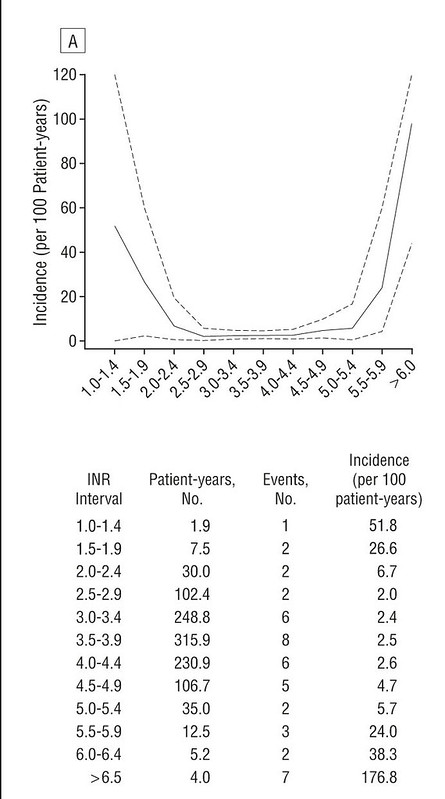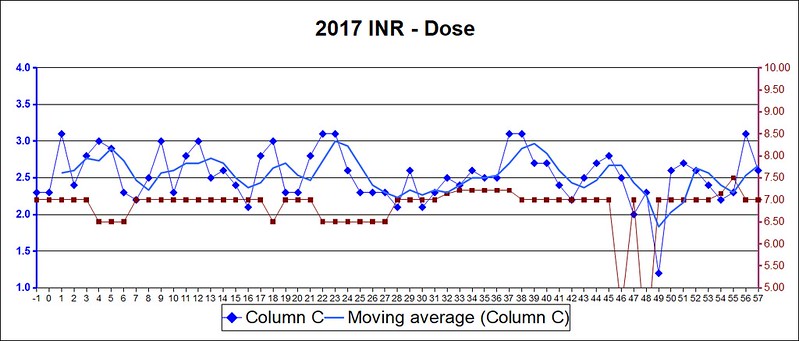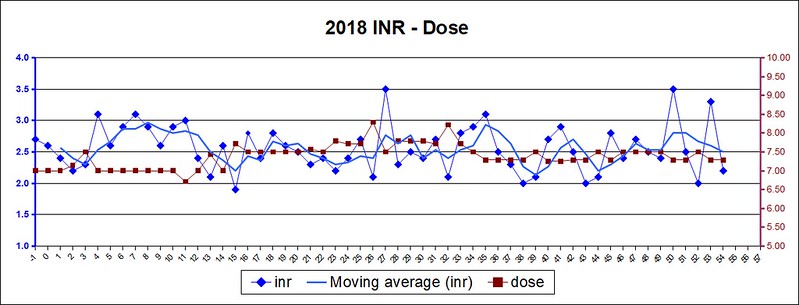Agian
Well-known member
That's so cool that you're a drummer Thomas.

The one to someone else or the long detailed one at the topThanks for your response!
Totally agreeLife has to go on, otherwise where's the fun!



my dentist has often remarked that if he didn't know I was on warfarin there would be nothing in my bleeding to give it away. My view is this suggests that many of the "stories" were from situations where INR was out of range on the high side.I also had dental surgery recently...no excess bleeding or bridge necessary in my case.
Apart from limiting my alcohol intake and regular training I live my life the same way I did before the operation.
I self test and self dose, and despite a narrow therapeutic range (3,0-3,5), I've only been drastically outside right after my child was born.



The drawbacks of mechanical valves that I feel is under communicated is noise and impact on other medical procedures.
I'm not sure if the aortic or mitral valve is the real culprit, but these suckers are noisy.
I mostly manage to ignore the ticking, but it is loud enough that some of my friends was able to pick it out in a noisy restaurant.
The other issue is risks and willingness of hospitals to perform surgery on patients on ACT. My mom had a shoulder issue that was scheduled as a routine surgery. After initial checkup the surgery was canceled. The surgeon did not want to risk bleeding with operating with a INR over 2
Knowing what i know today, I still would have gone mechanical given the choice. I'd rather avoid having another OHS if I can.
something makes me think there is more to this story than meets the eye ;-)Warfarin directly resulted in a unplanned pregnancy. Number 5 was not intended.
Are they keeping an eye on the baby, cause when on warafarin(Coumadin) It is highly recommended not to get pregnant, due to high risk chance of major birth defects. I am surprised they did not get you on Birth Control.Warfarin directly resulted in a unplanned pregnancy. Number 5 was not intended.
But I had to reschedule a certain procedure due to being above or our target of under 2 INR. Dr was booked out a month.
I guess my youngest was supposed to be here. Wouldn’t change a thing now.
Are they keeping an eye on the baby, cause when on warafarin(Coumadin) It is highly recommended not to get pregnant, due to high risk chance of major birth defects. I am surprised they did not get you on Birth Control.
So you must be a male. for a female would have been advised from becoming pregnant while on Warafrin. So it may be different for the male persuasion, LMAO! But good luck on the procedure.Since I’m Superman, there have been no issues with Warfarin and pregnancy. My wife handled the hard work. No birth control available for me save for the aforementioned procedure that I had to reschedule.
I’ve been on Warfarin since I was 17. All five of my kids were conceived while I was medicated.